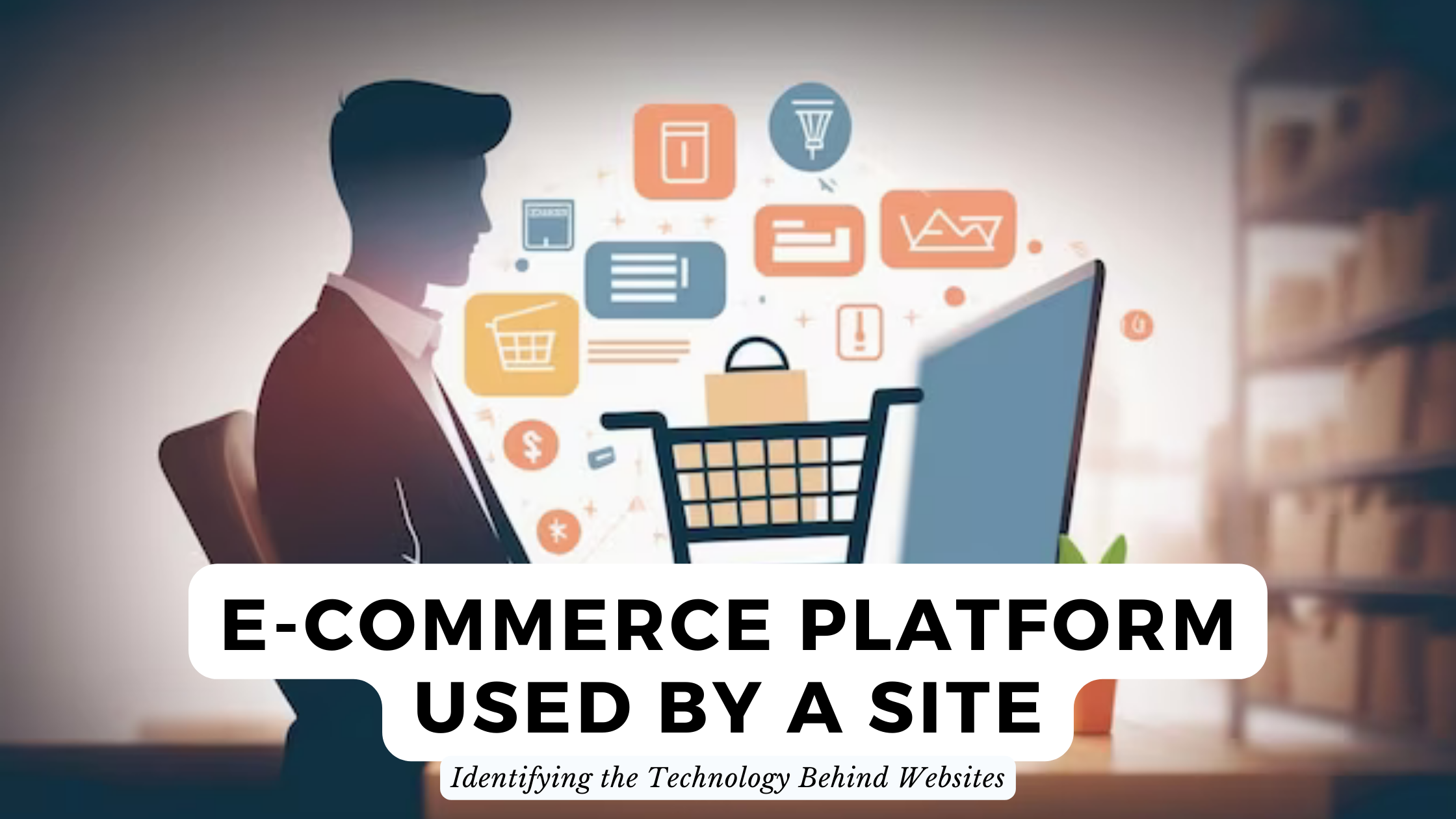E-commerce Platform Used by a Site: Identifying the Technology Behind Websites


E-commerce Platform Used by a Site: Identifying the Technology Behind Websites
In the digital landscape of e-commerce, the choice of the platform that a website employs can significantly impact the user experience, functionality, and overall success of an online store. For those curious minds wondering, “Which e-commerce platform does a site use?” this article aims to unravel the mystery behind the technology powering various online stores. Dive into the world of e-commerce platforms and discover the tools that drive some of the most successful online businesses.
Decoding E-commerce Technologies
Understanding the technology behind e-commerce websites involves recognizing the specific platforms that power their operations. Here are some notable e-commerce platforms and the sites they often support:
- Shopify: Renowned for its user-friendly interface, Shopify is a go-to platform for many small to medium-sized businesses. Websites with a seamless shopping experience and a variety of products may be powered by Shopify.
- Magento: Catering to larger enterprises, Magento is known for its scalability and customizable features. If you come across a site with a vast product catalog and intricate design, it might be running on Magento.
- WooCommerce: A WordPress plugin, WooCommerce seamlessly integrates with WordPress websites, turning them into fully functional e-commerce stores. Look for WordPress sites that feature an extensive shop section.
- BigCommerce: Positioned as a robust e-commerce solution, BigCommerce is suitable for a variety of businesses. If you encounter a website with high-quality visuals and a smooth buying process, it might be leveraging BigCommerce.
- Wix: Known for its website building capabilities, Wix also offers e-commerce functionality. Websites with a creative design and easy navigation may be using Wix as their platform.
SaaS Tools to Optimize Your E-commerce Experience
As you explore the technology behind e-commerce platforms, it’s crucial to consider SaaS tools that enhance the overall online shopping experience. Here are some relevant tools that can optimize your e-commerce journey:
- Hootsuite: Manage your social media presence efficiently, driving traffic and engagement to your e-commerce site.
- Mailchimp: Utilize email marketing strategies to keep your audience informed about promotions, product launches, and more.
- Google Analytics: Gain valuable insights into user behavior on your e-commerce site, helping you make data-driven decisions.
- Canva: Create stunning visuals and graphics for your e-commerce site, enhancing its aesthetic appeal.
- Subscribed.FYI: Elevate your SaaS management with Subscribed.FYI. Sign up for free today to unlock exclusive deals, compare SaaS tools, and optimize your subscriptions effortlessly.
Conclusion: Empower Your E-commerce Journey
In the dynamic realm of e-commerce, identifying the technology behind websites is a key step toward understanding and optimizing your own online store. By leveraging the right e-commerce platform and incorporating relevant SaaS tools, you can create a seamless, visually appealing, and efficient shopping experience for your customers.
Explore the world of e-commerce technologies, enhance your site’s functionality, and stay ahead in the competitive online marketplace. As you embark on this journey, consider Subscribed.FYI as your ally, providing a centralized platform to manage and optimize your SaaS stack. Sign up today and unlock a world of exclusive deals, empowering you to make informed decisions about the tools that drive your e-commerce success.
Relevant Links:
- Shopify
- Magento
- WooCommerce
- BigCommerce
- Wix
- Hootsuite
- Mailchimp
- Google Analytics
- Canva
- Subscribed.FYI








